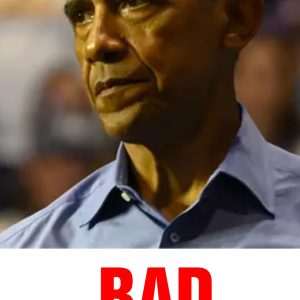My name is Victoria, and for most of my life, I was convinced that being a good daughter meant swallowing my pride and accepting my lot in the family. I believed that rocking the boat was the ultimate sin, and that unconditional love required unconditional silence. All of that changed the day I turned twenty-five, when a single meeting taught me a brutal truth: sometimes, the deepest betrayals are orchestrated by the people you call family.
What I thought was a simple birthday milestone cracked open a twenty-five-year vault of secrets, revealing a web of financial control, blatant favoritism, and a conspiracy of silence. The inheritance I knew nothing about was more than just money—it was a key that unlocked the truth about who my family really was.
The Unspoken Hierarchy
Growing up in the affluent sprawl of Dallas’s Bellmont Heights, my life was a picture of privilege. From the outside, our stately colonial home with its impeccable gardens was the very emblem of success and unity. We were the family that had it all figured out.
Behind closed doors, the story was different. My parents, Robert and Catherine, had built a formidable empire through real estate and my father’s high-stakes corporate law practice. We moved in the most elite circles, but within our own home, a rigid, unspoken caste system governed everything.
My older brother, Marcus, was the crown prince—his every accomplishment was met with thunderous applause and open checkbooks. My younger sister, Olivia, was the cherished baby, her every whim anticipated and indulged.
And I was the middle child, the reliable one, expected to be content with the scraps of their attention. The disparity was never subtle. When Marcus wanted an elite East Coast boarding school, my parents happily wrote the check. When Olivia developed a passion for show jumping, they bought her a champion horse and enrolled her in the most exclusive academy in Texas.
But when I asked to go to a summer art program—a fraction of the cost of their pursuits—I was met with a lecture on fiscal responsibility and the value of a hard day’s work. That summer, I pulled espresso shots at a local café to save for community college classes, while Marcus cruised in a new BMW and Olivia’s vocal coach earned more per hour than I did in a day.
The Phone Call That Changed Everything
The carefully constructed illusion of our family began to crumble with a phone call from Hampton & Associates, the law firm that had handled my family’s affairs for generations. Margaret Hampton, the firm’s formidable senior partner, requested a meeting to discuss “matters pertaining to my maturity.”
I assumed it was about a minor insurance policy or a dull administrative task. Nothing prepared me for the conversation that awaited me in her oak-paneled office.
“Victoria,” Mrs. Hampton began, her voice calm but deliberate, “your great-grandmother Lillian was a woman of profound foresight. She established individual trust funds for each of her great-grandchildren, designed to mature on their twenty-fifth birthdays.”
She slid a heavy file across the polished desk. I opened it to find my name typed on formal documents next to a number that made my breath catch.
“Your fund has been managed for a quarter-century,” she continued. “Its current valuation is just over $2.8 million.”
The numbers swam on the page. Nearly three million dollars. It had been mine all along, quietly compounding while I scrimped and saved, weighed down by student loans and the anxiety of making rent.
“I don’t understand,” I whispered, my throat tight. “If this was here… why didn’t I know?”
Mrs. Hampton’s expression softened with something that looked like pity. “The documents are clear. Your parents were the designated custodians. They were to inform you of the trust and facilitate its transfer. They have received detailed annual statements since its inception.”
The floor seemed to drop out from under me. They knew. For twenty-five years, they had watched me struggle, all while sitting on a fortune that was legally and morally mine.
A Pattern of Deceit
As Mrs. Hampton walked me through the paperwork, a devastating pattern came into focus. Great-Grandmother Lillian had been meticulously fair, creating identical trusts for all three of us with the same seed money and management.
“Your brother Marcus accessed his trust three years ago,” Mrs. Hampton noted gently. “Your sister Olivia’s matures in two years. Your parents are fully aware of its value as well.”
The pieces snapped together. Marcus’s seemingly miraculous launch of his own law firm wasn’t just ambition—it was funded by a $2.8 million head start I’d been denied. Every time I’d been told “we can’t afford it,” every lecture on pulling myself up by my bootstraps, had been a calculated lie.
“Why?” I asked, though the question echoed into a void of my own making.
“I cannot speak to their motivations,” Mrs. Hampton replied with professional neutrality. “But I can state unequivocally that their actions contravened your great-grandmother’s explicit wishes for equality among her heirs.”
Gathering the Evidence
Rather than confronting them immediately, I chose to arm myself with facts. With Mrs. Hampton’s guidance, I hired a forensic accountant to trace the full impact of their deception.
The trust was never meant to be a secret. I should have been told at eighteen and given annual distributions for my education. Instead of juggling jobs and loans through college, I should have been able to focus on my studies, pursue unpaid internships, and travel abroad. The provisions would have covered tuition, housing, everything.
The investigation revealed something even more insidious: my parents had taken unauthorized “administrative fees” for managing the trust—profiting from money that was never theirs.
“This isn’t just about the principal sum,” the accountant explained. “They didn’t just withhold money; they stole your opportunities. They forced you to build a life on hard mode while your siblings played with every advantage unlocked.”
The Reckoning
Dossier in hand, I called a family meeting under the guise of discussing “financial planning.” They gathered in our formal dining room, oblivious. Marcus was crisp from the golf course; Olivia breezed in smelling of hay and leather.
I took my father’s seat at the head of the table. The folder sat between us like a bomb.
“I’ve learned something about our family’s finances,” I began, my voice steady. “Something that explains a great many things.”
My father sighed. “Victoria, must we be so theatrical?”
“I think systematic financial abuse warrants a little drama,” I said, opening the file. I placed the first page in the center of the table. The trust document with my name on it. I watched the color drain from my parents’ faces.
“This is my $2.8 million inheritance,” I said, my words clear and measured. “The one you’ve known about since the day I was born. The one you hid while I struggled and my siblings flourished.”
The silence was absolute.
The Unraveling
What followed was a masterclass in deflection. My mother tried to coat the truth in condescension. “You’re oversimplifying a very complex situation, darling.”
My father appealed to a twisted sense of nobility. “We were building your character! We wanted you to be resilient, not entitled.”
“How fortunate that Marcus and Olivia were spared such character-building hardship,” I replied.
Marcus was the first to break. “I truly didn’t know,” he insisted, a dawning horror on his face. “I thought you’d chosen a different path.”
“Did you ever ask?” I countered.
Olivia’s reaction was perhaps the most startling. “Wait,” she interrupted, looking genuinely bewildered. “I have one of these too?”
The meeting devolved over two hours into a tapestry of weak justifications and wounded pride. They claimed they were protecting me from the corrupting influence of wealth, that the markets were bad, that I was being ungrateful for the life they’d given me. None of it could explain the deliberate, quarter-century-long concealment.
The Fallout and the Fight
The path to justice was not smooth. When I engaged lawyers to reclaim what was mine, my parents retaliated with a campaign of character assassination. They called relatives, painting me as an unstable, greedy daughter led astray by litigious parasites. They whispered to business associates about my “erratic behavior,” trying to tarnish the professional reputation I’d built on my own.
It split our extended family in two. Some, indebted to my parents’ wealth and influence, sided with them without question. Others, like my great-aunt Patricia—Lillian’s own daughter—reached out with support. “Your great-grandmother would be shattered by this,” she told me. “She wanted to give you all wings, not chains.”
The legal battle was brutal. Their initial settlement offer was a pittance paired with a demand for my eternal silence. We fought for—and won—not just the full value of the trust, but significant additional compensation for the opportunities they had stolen from me. The settlement mandated they properly inform Olivia of her trust and relinquish all control over it. They were forced to issue a written, if stilted, apology.
The Uneasy Peace
Today, the money has provided the security and freedom it was always meant to. I’m pursuing an MBA I could only have dreamed of before, and I’ve started a foundation that offers grants to young people denied their rightful access to family resources.
My relationship with my parents is a hollowed-out thing, a landscape of polite distance and unhealed wounds. They still see themselves as the victims of an ungrateful child, their “good intentions” a shield against any real accountability.
My relationship with Marcus has found a new, honest footing built on his genuine remorse. With Olivia, it’s more complicated; she often circles back to how the conflict embarrassed her, struggling to see past her own role as the favored child.
The True Inheritance
In the end, the money was only part of the story. The greater inheritance was the truth. My great-grandmother Lillian’s gift was meant to be an equalizer. My parents twisted it into a weapon.
The legal victory gave me back my financial footing, but the personal victory was far more profound: it gave me back my voice. I learned that I could survive their betrayal and thrive without their approval. I learned that setting boundaries isn’t disloyalty—it’s self-respect.
The trust fund they tried to hide didn’t just expose their true colors. It helped me discover my own strength, resilience, and my unwavering sense of justice. And that, I’ve come to realize, is the only inheritance that truly matters.





